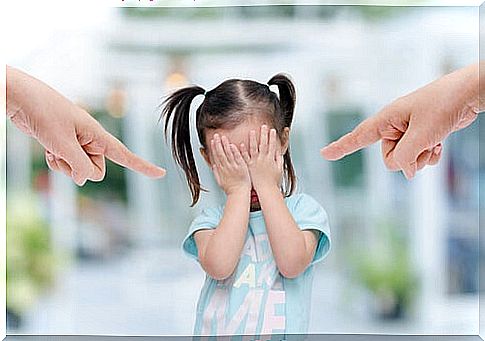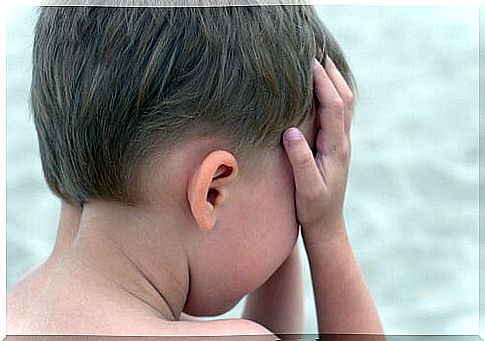Yelling Is Harmful To The Young Brain

“Through ignorance we descend to servitude, through education we ascend to freedom,” Diego Luis de Cordoba once said. Education, however, has little to do with the compulsive imposition of knowledge, much less with yelling. In fact, screaming can cause serious damage to young brains.
Yelling is not an effective way to get others to listen to you, according to several studies. In addition, we often yell at others as a way to release our own frustration, not to give information. This is especially true for children, as they do not learn by yelling.
Empty shouting
Authors like Aaron James argue that yelling more doesn’t mean you’re more right, nor does it give you an edge in an argument. This has been confirmed in several studies, even one that mentioned the current president of the United States, Donald Trump. If we want to come across as correct, yelling won’t help us. Reason, don’t yell, and you will win an argument.

Usually one screams when one loses control. Therefore, this is the message people get when you scream – that you have lost control and given in to your emotions. Yelling actually detracts from the words you’re trying to say.
Consequences that screaming has on children
Well, according to a new study published by the University of Pittsburgh, yelling at a baby regularly can pose a host of risks to his psychological development.
That is, all those people who yell to punish their child increase their child’s risk of developmental problems. Children who are often yelled at often learn to respond with aggressive or defensive behavior.
The study involved nearly a thousand families with children between one and two years old. The study found that children who were often yelled at were more likely to show depressive symptoms and behavioral problems during childhood.
In fact, they found that yelling doesn’t make problems less, it just makes them worse. For example, it can make children disobedient. Meanwhile, parents who adopt a warmer attitude toward their children minimize the negative effects of the few times they yell.
Further research
There are many more studies in this area. The Harvard Department of Psychiatry confirms that verbal abuse, yelling, humiliation, or a combination of the three can permanently alter a child’s brain structure.
After analyzing more than 50 children with psychiatric problems due to family problems, and comparing them with nearly 100 healthy children, they made alarming discoveries. For example, the children with psychiatric problems showed a strong reduction in the corpus callosum, ie the part of the brain that connects the two halves.
This shrinkage can cause both hemispheres to become less integrated, exacerbating personality and mood changes and compromising emotional stability. Another consequence of this reduced connectivity is the inability to concentrate.

How can we make sure we scream less?
Sure, our kids can drive us crazy sometimes, but yelling is never the answer. In order not to give in to this temptation, do not forget the following:
- Shouting is losing control. If we lose control, we can no longer properly punish our child.
- Avoid stressful moments. Sometimes it is difficult, but if we pay close attention we will learn what makes us scream. So if we see the pattern, we can work on changing it.
- Calm down before taking action. Develop a strategy that calms you down when you reach your limit, such as counting to ten. Relax and take control.
- Don’t blame yourself and don’t overdo it. In other words, be careful of the expectations you place on yourself and your child. Also, don’t blame the child for not always meeting your expectations. It’s a child. The most important thing is that he or she is happy and developing well.
Now we know about all the damage that frequent screaming can cause to the brains of babies and young children. So it is up to us, as mature and responsible people, to look for alternative forms of expression. We can find other ways to get our message across without endangering our children’s mental health.









